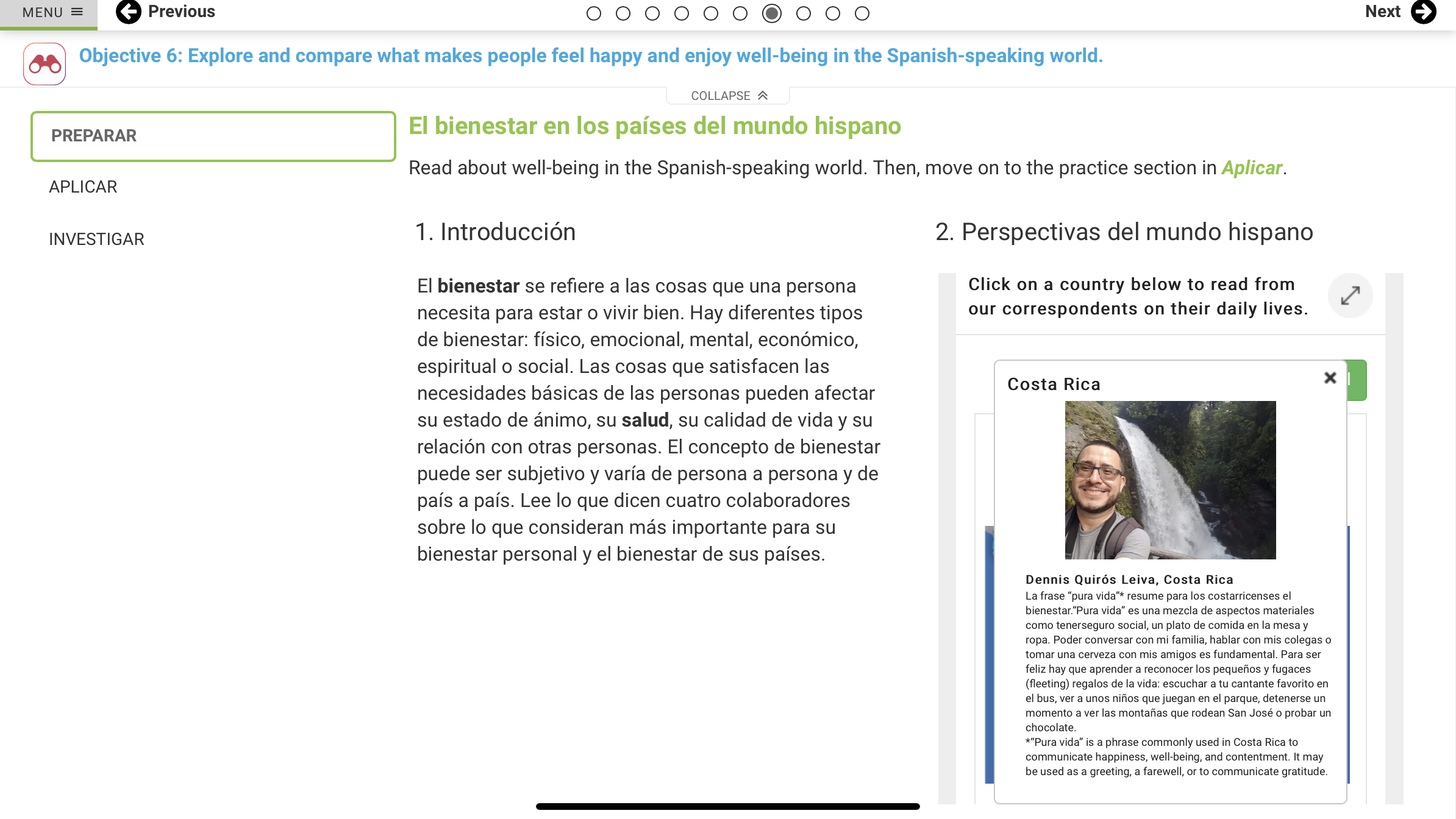Exploring Culture
In Unidad 8, I worked on an activity called “Perspectivas del mundo hispano”. From this activity, I learned that several Latin countries, there are dishes that are primarily enjoyed on special occasions. I learned that in places like Puerto Rico, pasteles de yuca are primarily eaten during Christmas. Whereas, Guatemalans eat chiles rellnos during their special events like birthdays. This activity showed me that different Latin countries have a wide variety traditional dishes or special occasion dishes. I didn’t have any misconceptions revealed to me, I was very aware that the dishes wouldn’t be the same. But it is interesting to see how it varies from country to country.
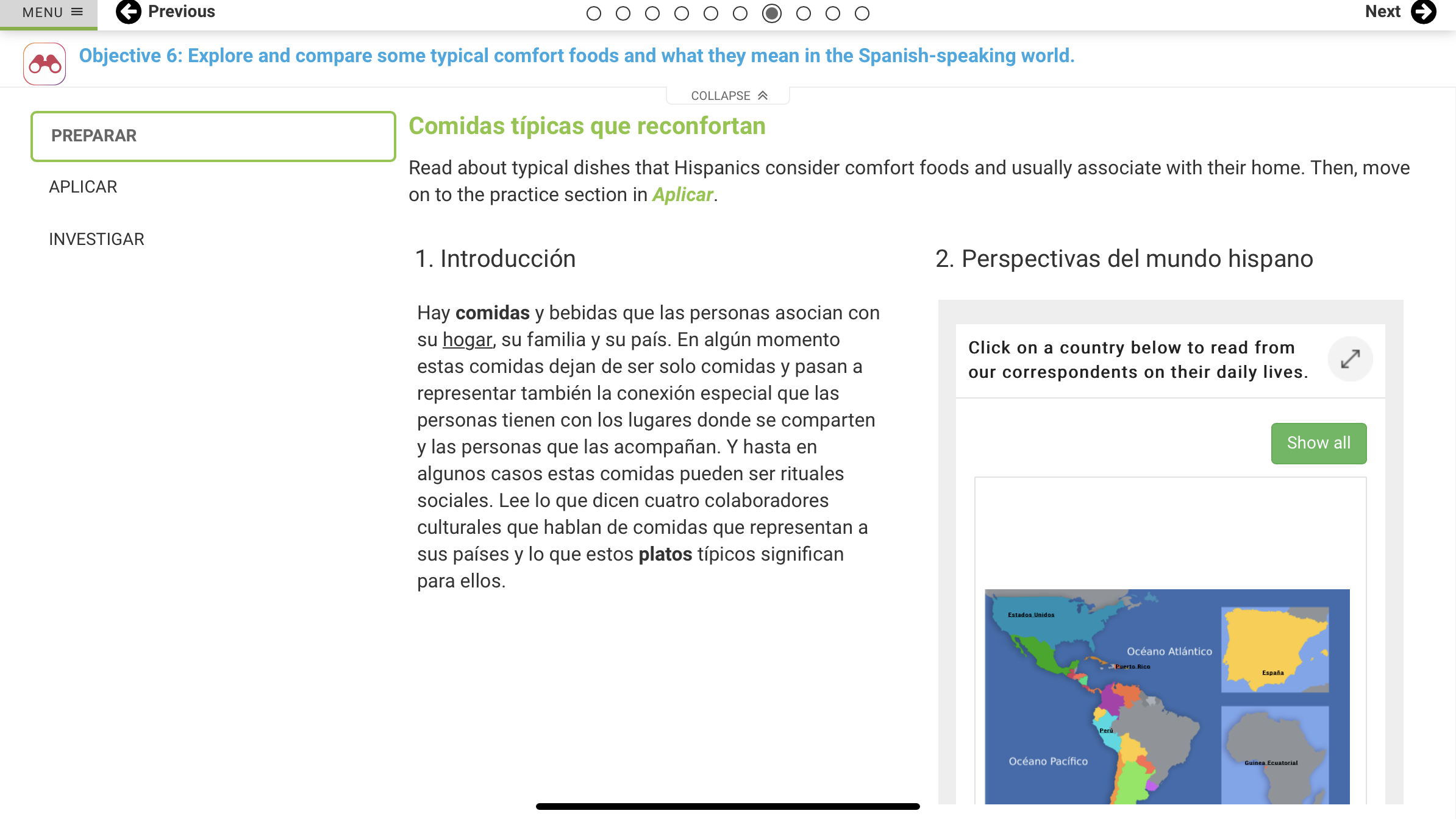
Engaging in Communities
During my time in college, I’ve learned that it is pertinent to your success in college to be involved with the community around you. It is important to partake in activities and clubs because you can be immersed in something that you’re interested in our will help you prepare for your career. Recently, I participated in an event called Train like An Alpha. This is an event where the brothers of Alpha Phi Alpha get two or three groups of girls and teach them different Alpha strolls and routines to compete against each other. While preparing for the event, I practiced my teamwork skills. I took the lead at some points at certain points like teaching a dance and making the music mix as well as sitting back and learning from my teammates. This event was a fun way to decompress as well as experience something I’ve never done before. We also won the competition!
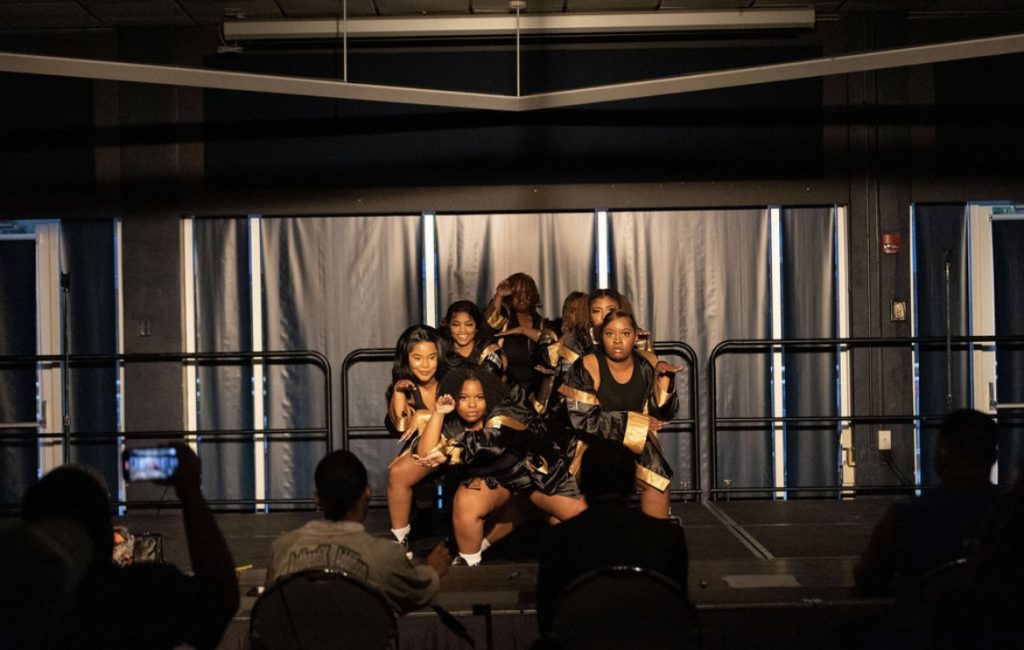
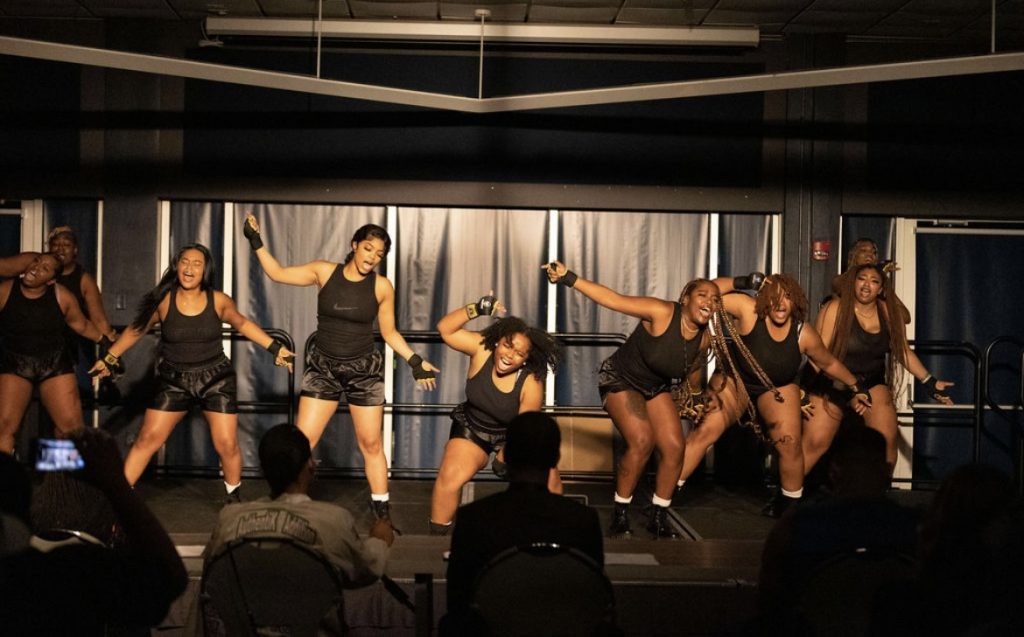
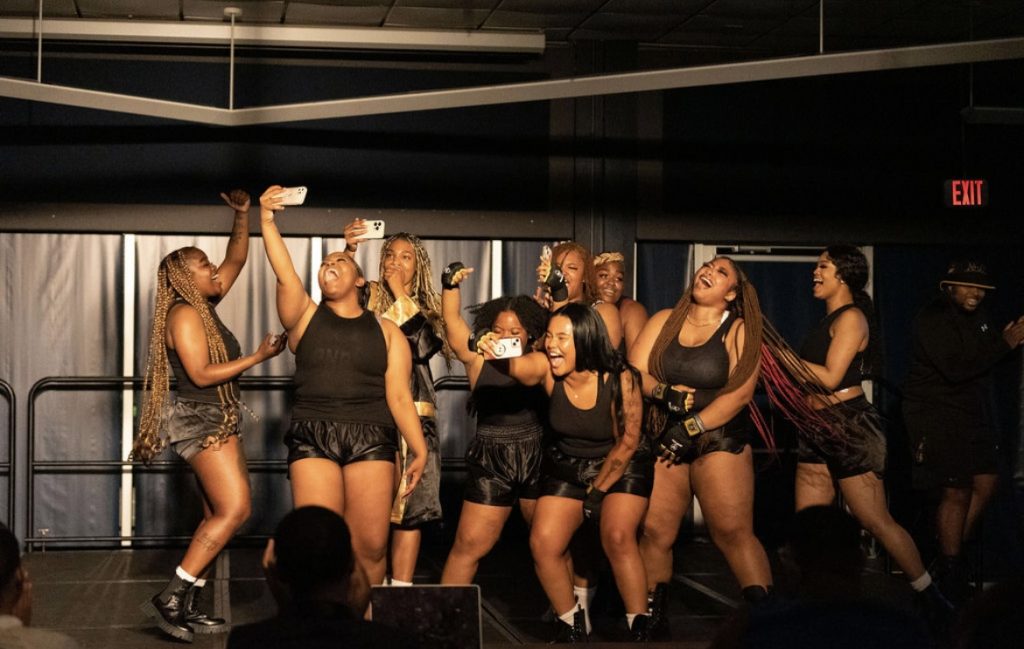
Interpersonal Communication
When doing my TalkAbroad, I was anxious to be speaking to a native speaker. Although I’ve taken several Spanish classes, I didn’t have much experience speaking in real time to anyone but my professor. Although I was nervous, I did pretty well. I did a good job at using the vocabulary I have learned to the best of my ability. I think I would’ve done better if I slowed down instead of trying to rush through my sentences because of nerves. After this activity, I will take a pause before I proceed with the conversation so I can perfect my Spanish.
Presentational Speaking
In Unidad 6, we were instructed to write a presentation about our family members and their traits. This activity did not challenge me much because I knew a lot of this vocabulary prior to this project. Although the assignment itself was simple, I had a little bit of a hard time with the presentation for class because I forgot some of the words once I got up to present. To prevent this from happening again, I will make sure my project script is the first thing I look at when I wake up to prevent forgetting words. I cannot include a video for this piece because we presented in class, but I will include the LingroLearning screenshot.
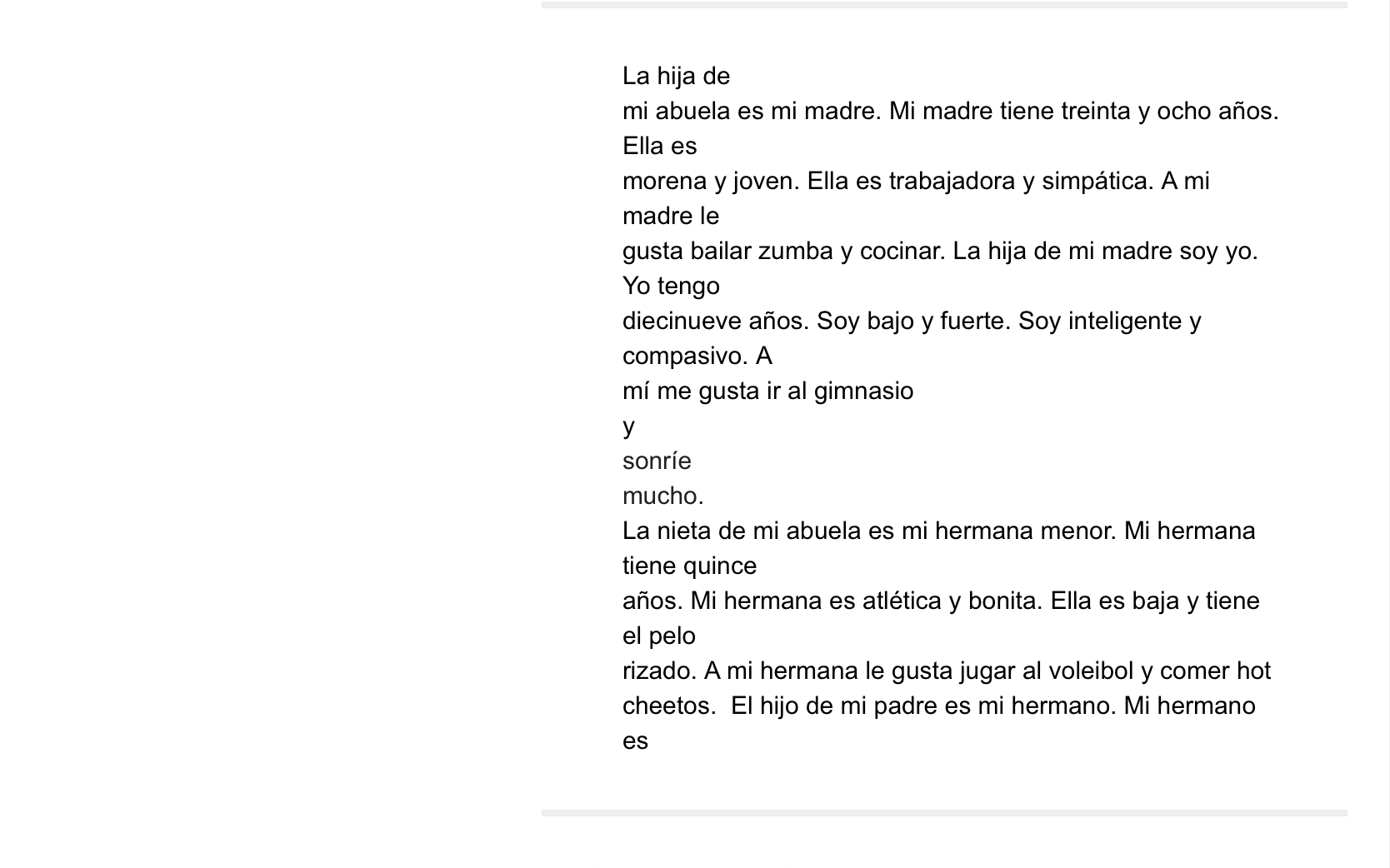
Presentational Writing
In Unidad 7, we created an ad for a club dedicated to fitness or sports. I did my project on Zumba. This project was a little trickier for me because we had to incorporate formal commands. On the initial draft, I got a 96% because I had a couple of misspellings like the conjugations of words. Correcting the formal commands became easy once I went back and studied and the conjugations became easier once I slowed down to think about what was correct. Considering I got a 96% on my draft and an 100% on the final, in the future, I will just make sure I double check my work for the best results.
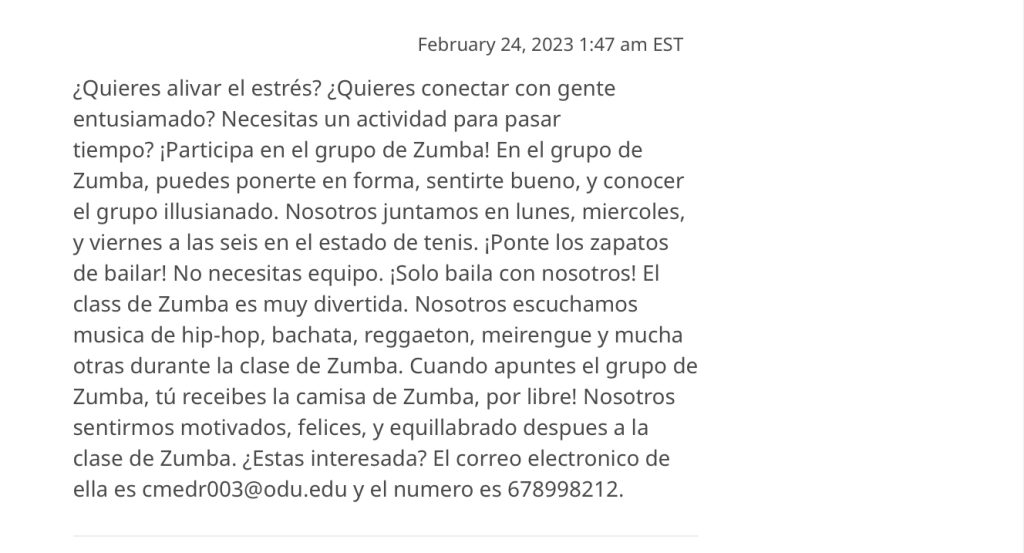
Interpretive Listening
In Unidad 9, we learned about Las Tildes. I learned where to stress syllables in words. This activity was interesting to me because vocal variation in the Spanish language is very different than that of English. We had a lot of practice with pronunciation in class as well, when we would learn vocabulary. My professor would have us repeat the words back to her and check our pronunciation. With all the practice in class and on LingroLearning, I am now able to look at a word with an accent mark and pronounce it correctly. I have included a YouTube link to the audio I’m referring to.
Interpretive Reading
In Unidad 9, we read about well-being in Spanish-speaking countries. In a lot of ways, we have similar ideas of well-being as those in Latin America. For example, Ana Sofia from Columbia stated that her well-being is pertinent to spending time with friends and family as well as having no debt and a good job. As well as Dennis from Costa Rica, who stated his well-being looks like getting a beer with his friends. This activity taught me that there are not many differences in what people think well-being is from country to country. A problem I had with this assignment was matching the statements with the correct person. I resolved this by referring to the original paragraphs to get the right answer. I learned that I need to be more of active reader the complete an activity like this.
